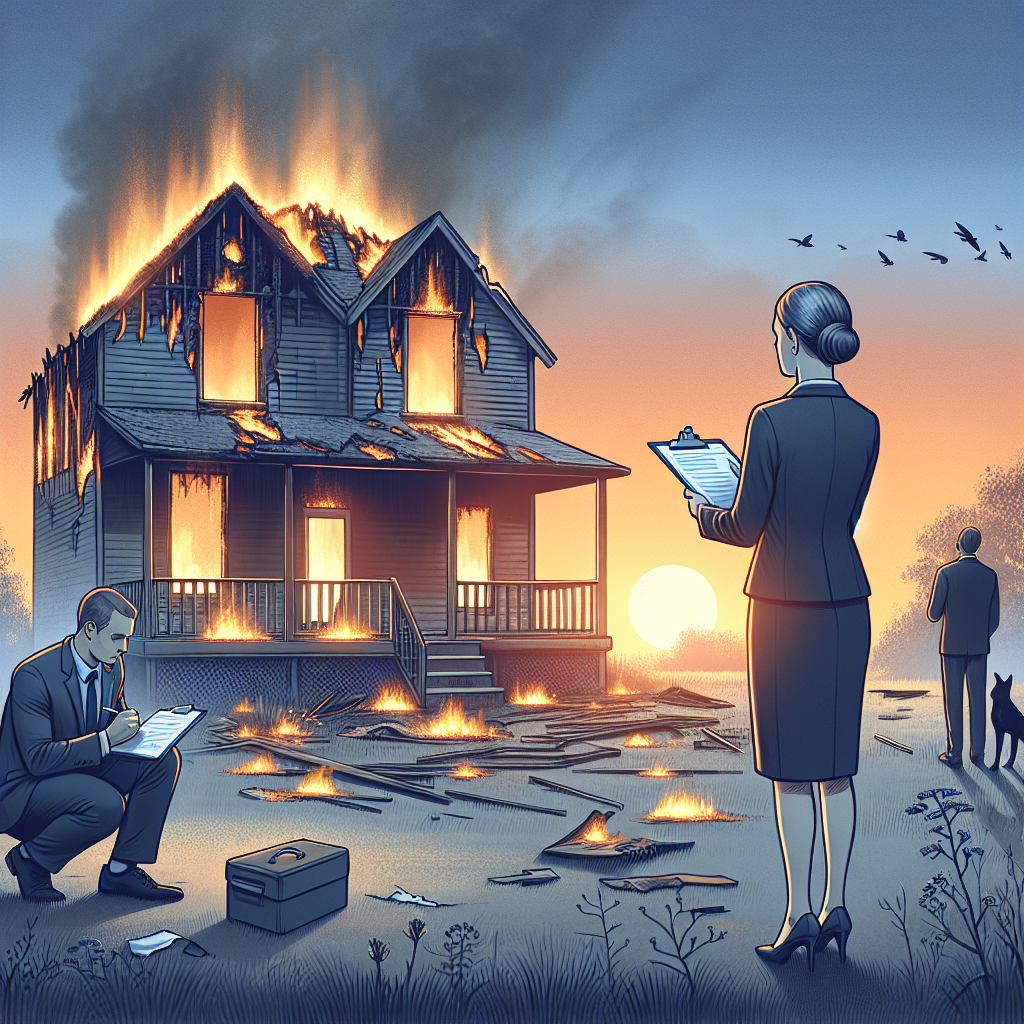Filed under Home Insurance on
Does Home Insurance Cover Arson? Find Out Here

Understanding the intricacies of home insurance can seem like a daunting task for many homeowners. Among the myriad of questions that arise concerning what is and isn't covered, one common query is: does home insurance cover arson? This question delves into not just the coverage aspects, but also the legalities and conditions specified in insurance policies. In this article, we will explore the complexities surrounding home insurance and arson, offering detailed insights backed by industry research and expert opinions. Let's dissect the coverage, the stipulations that might affect claims, and how insurers handle cases of arson.
What Is Arson and How Does It Affect Home Insurance?
Arson is the criminal act of deliberately setting fire to property, and its implications on home insurance can be profound. Under normal circumstances, home insurance is designed to protect homeowners against unforeseen damage and losses related to fires, among other perils. However, when it comes to arson, the situation demands careful scrutiny.
Generally, most standard home insurance policies do cover fire damage, including that caused by arson, provided the policyholder is not the perpetrator. If it is determined that the homeowner intentionally set the fire, insurance companies have grounds to deny the claim. This delineation between an unforeseen accidental fire and deliberate arson is crucial in determining coverage eligibility.
What Does Home Insurance Typically Cover?
Before delving deeper into arson-related claims, let's first look at what standard home insurance generally covers. Most homeowners insurance policies, especially the comprehensive ones, cover multiple perils such as:
- Fire damage
- Theft
- Vandalism
- Storm damage
- Natural disasters (except those typically excluded like floods and earthquakes)
Coverage usually includes the main structure (the house itself), detached structures (like garages), personal belongings, and additional living expenses incurred due to temporary relocations necessitated by significant damage.
When Does Home Insurance Not Cover Arson?
The primary condition that affects whether home insurance covers arson is intent. If a policyholder is found guilty of intentionally setting fire to their property to collect insurance money, this constitutes insurance fraud, leading to denied claims and potential legal consequences.
Additionally, if there is ambiguity in the circumstances around the fire, insurance companies launch thorough investigations. These investigations aim to determine the origin of the fire, the possibility of foul play, and the financial background of the policyholder to assess the legitimacy of the claim.
Exclusions and Limitations in Arson Claims
Insurance policies often have specific exclusions and limitations that policyholders should be aware of. Here are some typical exclusions:
- Intentional Acts: Any act of willful destruction by the insured or their immediate relatives living together can void the policy.
- Negligence: If the fire was caused by gross negligence on the part of the homeowner, it could affect claim approval.
- Policy Lapses: If the policy has lapsed due to non-payment or other reasons at the time of the incident, there will be no coverage.
Industry Trends and Insights on Arson Cases
In recent years, the insurance industry has witnessed increasing sophistication in detecting fraudulent activity. New technologies and methodologies are being implemented to prevent and investigate insurance fraud, including cases involving arson coverage.
Fraud Detection and Prevention
Insurance companies employ a range of technologies such as data analytics, artificial intelligence, and forensic investigation to detect anomalies and confirm the authenticity of claims. The use of predictive analytics helps in identifying potentially fraudulent claims by analyzing patterns and inconsistencies in data.
These trends underscore the importance of maintaining transparency and compliance with policy conditions to ensure your claims are processed smoothly and swiftly. It is also imperative for homeowners to familiarize themselves with their policy details and maintain accurate records to facilitate claims processing.
What to Do If You Suspect Arson
If a fire damages or destroys your home and you suspect arson, taking prompt and decisive action is crucial. Follow these steps to ensure you are covered and safeguarded against potential disputes:
- Contact the Authorities: Immediately report the fire to the police and fire department for a comprehensive investigation.
- Secure Evidence: Document the damage through photographs and videos as soon as it is safe to do so.
- Inform Your Insurance Provider: Notify your insurance company as soon as possible. Provide them with initial reports and all information requested during their investigation.
- Cooperate with Investigations: Full cooperation with any investigations, whether conducted by authorities or the insurance provider, is essential. Be prepared to provide detailed information about the events leading up to the fire.
Conclusion
Understanding whether home insurance covers arson requires a comprehensive look into your policy terms and the circumstances surrounding the fire. While standard home insurance will cover unintentional fires, question marks around the cause, especially in cases of suspected arson, could complicate claim processing.
Ultimately, it is crucial for homeowners to stay informed and vigilant, ensuring they are aware of their policy's coverage, exclusions, and the importance of ethical compliance. By maintaining clear records and exercising due diligence, you can effectively protect your home and ensure proper handling of any claims related to arson.
For future peace of mind, consider reviewing your insurance policy regularly with an advisor, who can provide tailored advice and the latest insights on secure and beneficial coverage options.



